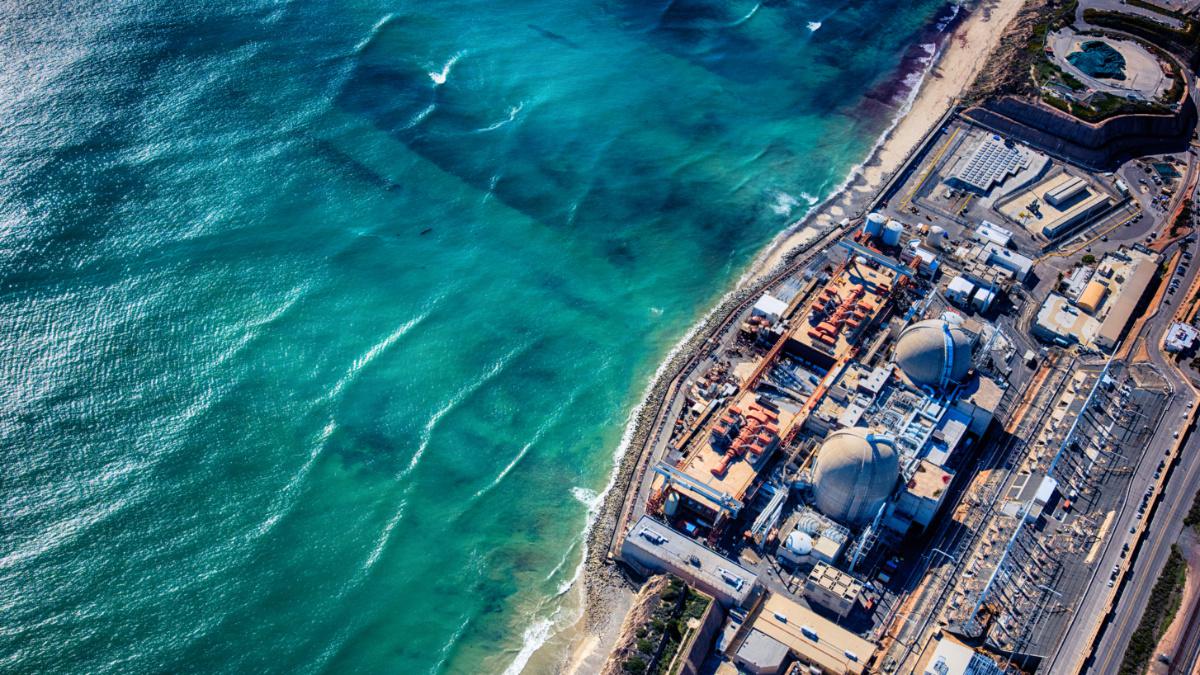

Recent research suggests that some nuclear waste storage facilities along the U.S. coast could experience flooding from rising seas. Art Wager / Getty Images
Nuclear power is a source of low-carbon electricity, but producing it creates dangerous radioactive waste that needs to be stored safely and permanently.
Recent research suggests that as seas rise, some nuclear waste storage facilities are at risk of flooding or storm damage.
“We really focused in to say, ‘OK, well, how many plants might actually be subject to these risks?'” says Sarah Jordaan of the School of Advanced International Studies at Johns Hopkins University.
Her team looked at 13 facilities along the U.S. coast.
They found that if seas rise about six feet – which is possible by the end of the century – more than half of the waste storage sites would be directly along the water’s edge or even surrounded by water.
So she says it’s critical to anticipate these long-term vulnerabilities and take action.
“There are certainly ways that those risks can be managed now,” Jordaan says.
For example, after five years, spent fuel can be moved to dry casks. This is a safer long-term storage method than the cooling pools where a lot of spent fuel is currently stored.
So Jordaan says it’s critical for policymakers to understand the risks at nuclear facilities and create regulations and policies to ensure greater safety.
Reposted with permission from Yale Climate Connections.
- Speeding Sea Level Rise Threatens Nuclear Plants - EcoWatch
- Louisiana Faces Faster Levels of Sea-Level Rise Than Any Other ...
- Sea Level Rise Is Locked in Even If We Meet Paris Agreement ...
- Atlantic Sea Levels Are Rising at Fastest Rate in 2,000 Years,

 233k
233k  41k
41k  Subscribe
Subscribe 